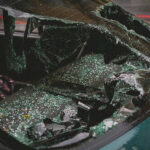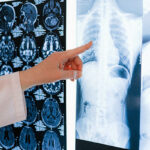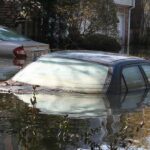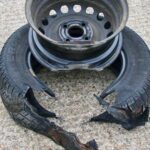More and more drivers are on the roads after a long absence during the pandemic. More and more drivers mean more and more accidents. After a car accident occurs, it is important to take some critical steps, especially if the wreck wasn’t your fault. Here’s a quick check list:
- Safety and Health First. It goes without saying, but immediately after an accident, check to be sure everyone is okay that was involved in the accident. Render aid if necessary.
- Report the Accident to Authorities. Many folks might not know that Texas Transportation Code section 550.026 requires the driver of any vehicle involved in an accident to immediately report the accident to the local authorities if the crash caused injury or death to a person or damage to a vehicle such that it cannot be driven safely from the scene of the crash.
- Police Reports Can Be Important. It is best to report the accident to the police. Police reports can be an important part of your claim, particularly if the other driver is claiming they are not at fault. Give the police a clear and accurate depiction of what happened before, during, and after the accident.
- Exchange Insurance Information. Be sure to exchange insurance information. It is imperative that you be able to call the at-fault party’s insurance company and make a claim immediately.
- Secure Witnesses. Get the full contact information of any witnesses.
- Document Damages and Injuries. Take photographs and videos of the damage to the vehicles and any other photographs that might help to support your claim for damages and injuries.
- Report Your Claim to At-Fault Party’s Insurer. Immediately report the claim to the at-fault party’s insurer. It is often the case that the at-fault party wants to avoid reporting the claim or they don’t report it immediately. Take this important step on your own to begin the claim process.
- Give Your Insurer Notice of the Claim. It is good practice to report any accident to your insurer. Your policy requires notice of a claim, and depending on your policy, it could require notice within a short amount of time. Noticing your insurer of an accident, even if it is not your fault, is also good practice because your insurer may investigate the claim and potentially convince the at-fault driver’s insurer that their driver is, in fact, at fault. Moreover, you may carry insurance coverage that applies regardless of fault, like Personal Injury Protection (“PIP”). Or, you may carry insurance that provides coverage in the event the at-fault driver is under or uninsured, also known as UM/UIM coverage.
- Beware of Recorded Statements. Recorded statements are used by insurance companies—yours and the at-fault party—to investigate your claim. They can be and are used against you. You will be asked about questions of liability and the nature and extent of your injuries. You may not know the full answers to these questions immediately after a collision. Texas law does not require you to give a recorded statement. You have the right to politely decline to give a recorded statement or offer a written statement instead of a recorded statement. You also have the right to hire a lawyer to take over these discussions with the adjuster to ensure you have properly preserved your claims.
- “Minor” Might Not Be Minor. Even if you think the accident was “minor,” the reality is there may be hidden damage to your vehicle and personal injuries that express themselves days or even weeks after the collision. Be cautious and prepare as if you will need to make a claim regardless of whether you think the accident was “minor.”
- Seek Medical Care. If you are injured, seek medical care immediately. Do not hesitate to seek medical care if you feel any pain, discomfort, or other health impact after the accident. Your first priority should always be your health and early treatment is the best way to preserve your claim and ensure you are compensated fully. Keep track of medical bills and records related to your treatment.
- Get a Lawyer. If you were injured as a result of an accident, don’t go it alone. Adjusters are trained to offer you the least amount possible for your personal injury claim. Contact a lawyer very early to ensure you are able to get the treatment you need to heal as fully as possible after the car wreck. Having a lawyer guide you through the claims process will help to ensure you are fully compensated for your personal injury claim.
The lawyers of LeMaster & Ahmed PLLC are here to help those that suffer personal injuries as a result of car accidents. Contact us at our Houston location at 832-356-7983 or our DFW location at 972-483-0410. You can also message us any inquiries directly on our website.
***The foregoing is not meant to serve as legal advice relating to your personal injury claim. Please contact one of our lawyers if you have questions specific to your particular insurance issue.
Speak to a Lawyer Now
Search Blog
"*" indicates required fields










